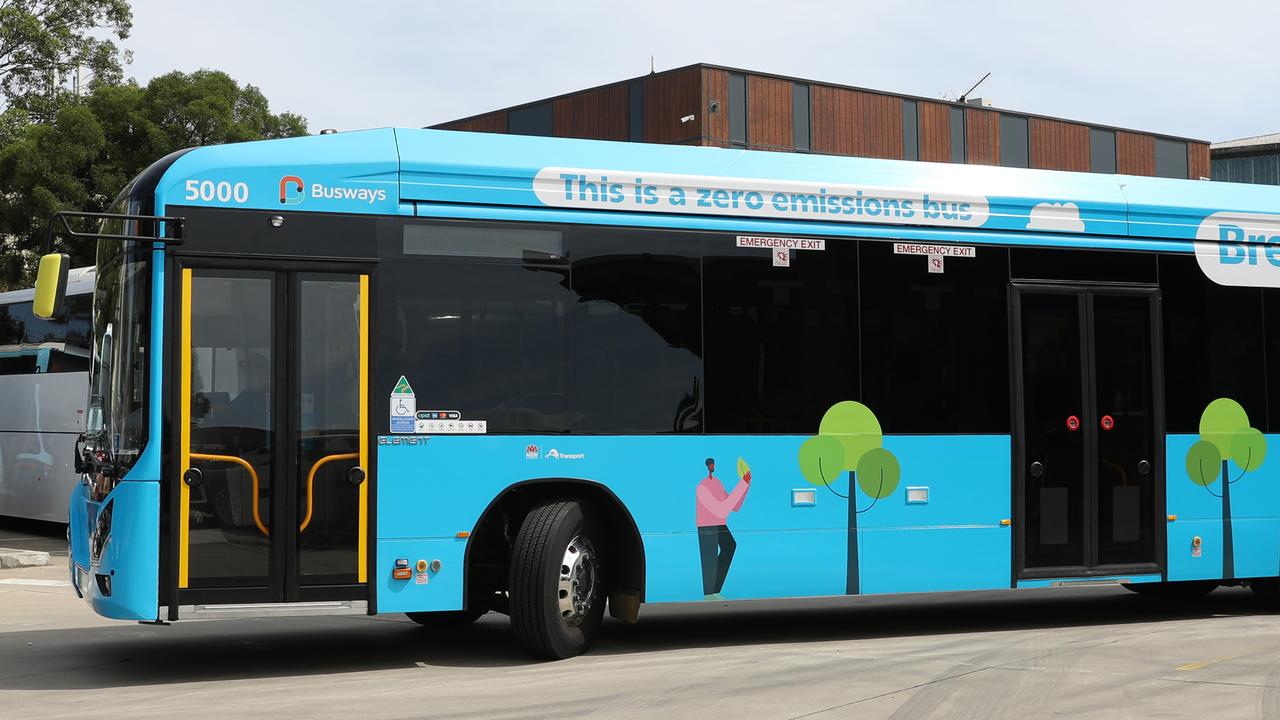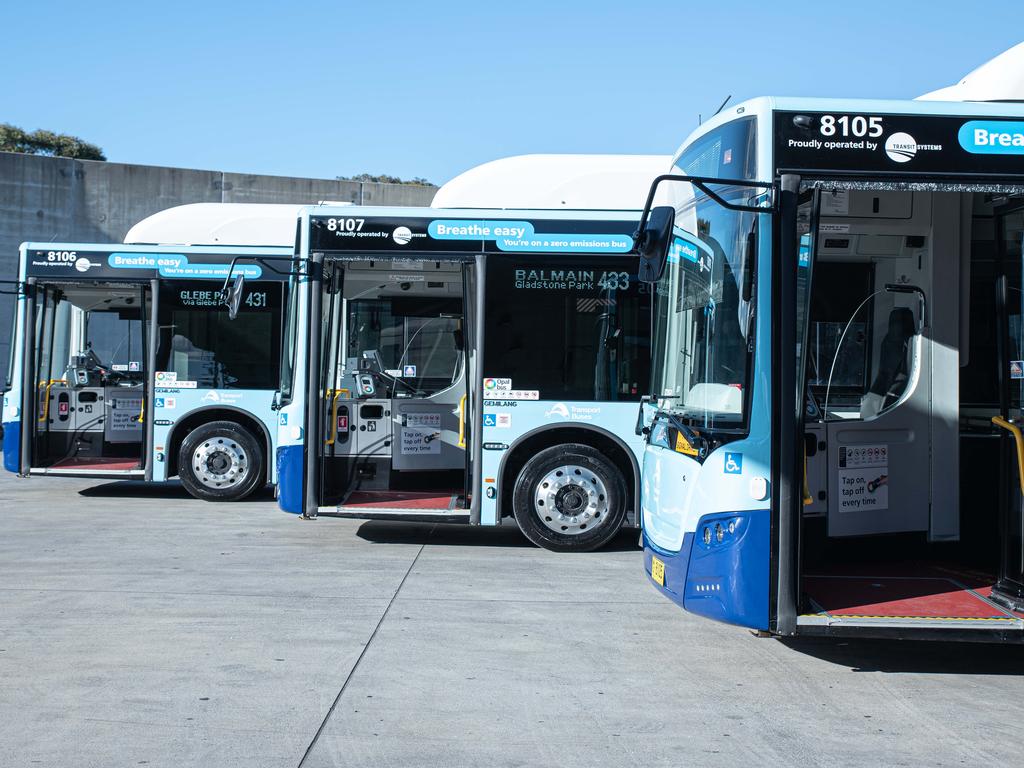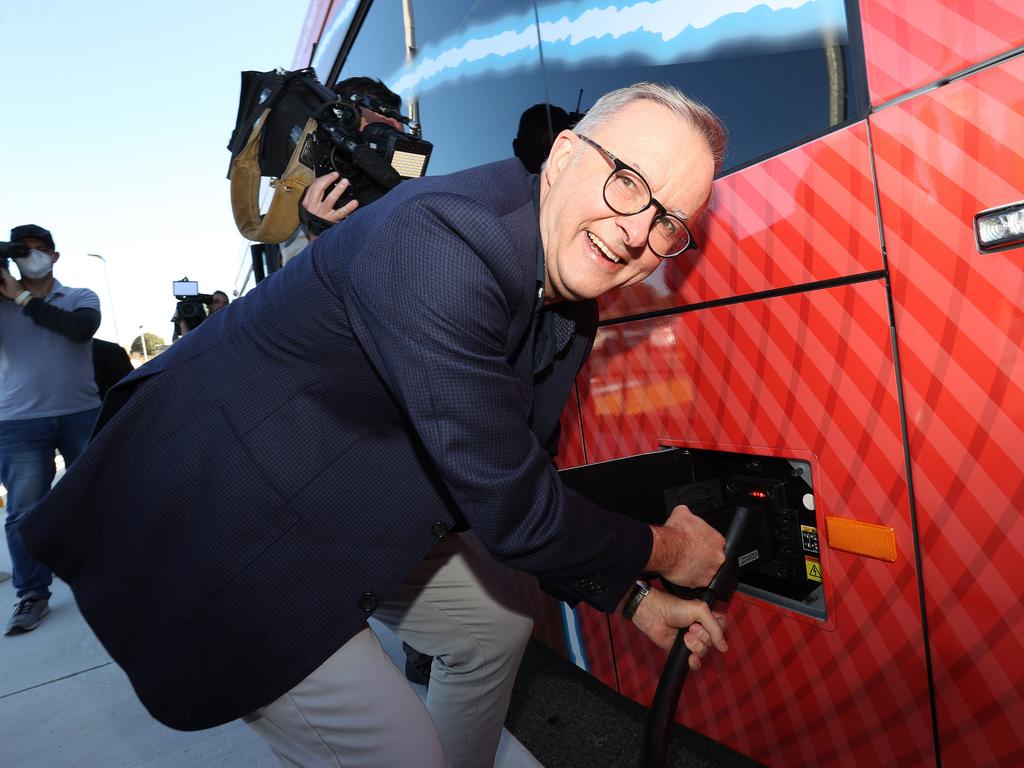What we really think of electric vehicle push
State governments have adopted ambitious targets for the electrification of their bus networks. See what Aussies think, take our poll.

Aussies are strongly in support of moves to electrify public transport bus fleets, with a new YouGov poll showing 70 per cent believe we should ditch diesel buses as soon as possible.
The survey of more than 2000 adult Australians, commissioned by the Climate Council, found two in three (66 per cent) want all diesel and petrol buses replaced with electric alternatives by 2030 at the latest.
Around one in eight respondents (12 per cent) said they were opposed.
Some jurisdictions have ambitious goals for the adoption of electric buses.
All new buses in Victoria and southeast Queensland will be zero-emissions by 2025, their respective state governments promise, while greater Sydney’s bus fleet will be fully transitioned by 2035 and the ACT’s by 2040.
“Expensive overseas oil can really take a hike,” Dr Jennifer Rayner, head of advocacy for the Climate Council, said of the survey results.
“This survey shows Australians will support public transport if government just make the right investments. Zero-emissions public transport offers a clear, quieter, more comfortable ride for people, and that creates a hook for people who might not be using it at the moment.”
But what of performance? A report into a trial of electric buses in the ACT in 2019 stated they missed 35 per cent of scheduled peak services due to technical issues and breakdowns, compared to just 1.7 per cent for diesel buses.
(A subsequent report by the Electric Vehicle Council found this was “primarily due to an issue with the build of the bus as opposed to its battery”.)
A report by the Los Angeles Times in 2018 found electric buses there also needed more service calls than traditional buses, and they were prone to stalling while going up hills.
Spokespeople for the transport departments in Queensland and South Australia said their electric and hybrid bus trials had not created any concerns about reliability, and their performance was on par with diesel buses, while in Victoria a departmental representative said it was too early in their trial for meaningful data.
A Transport for NSW spokesperson said they had more than 100 electric buses in service on Sydney roads today, and “early indications are positive for the performance and reliability of these buses in comparison to internal combustion engine buses”.
“Feedback from operators is these battery electric buses are exceeding expectations across a range of key operating and performance measures,” the spokesperson said.

According to research by the Australia Institute (AI), electric buses have a much higher upfront cost ($550,000-$900,000) than their diesel counterparts ($480,000), but their whole-of-life costs are lower. There are approximately 100,000 buses across the country today, but for some configurations, such as bendy and double decker buses, there is currently no electric option, an AI report from March stated.
The rapid adoption of electric buses would help drive down Australia’s greenhouse gas emissions, Dr Rayner said.
“(Transport is) Australia’s second largest source of emissions, and the only source that’s still going up,” she said.
The YouGov survey also found a vast majority (80 per cent) of Australians surveyed believe governments should invest more in public transport, and two in three (67 per cent) say there should be more investment in footpaths and bike lanes.

In one of the most interesting findings, just 16 per cent of survey respondents said roads should be prioritised in transport spending. Thirty-eight per cent said public transport, walking and cycling should be the priority, while 39 per cent said transport spending should be balanced between roads, public transport, footpaths and cycling.
“Investing in public transport and infrastructure for walking and bike-riding is much more popular than governments may realise,” Dr Rayner said.
Originally published as What we really think of electric vehicle push




